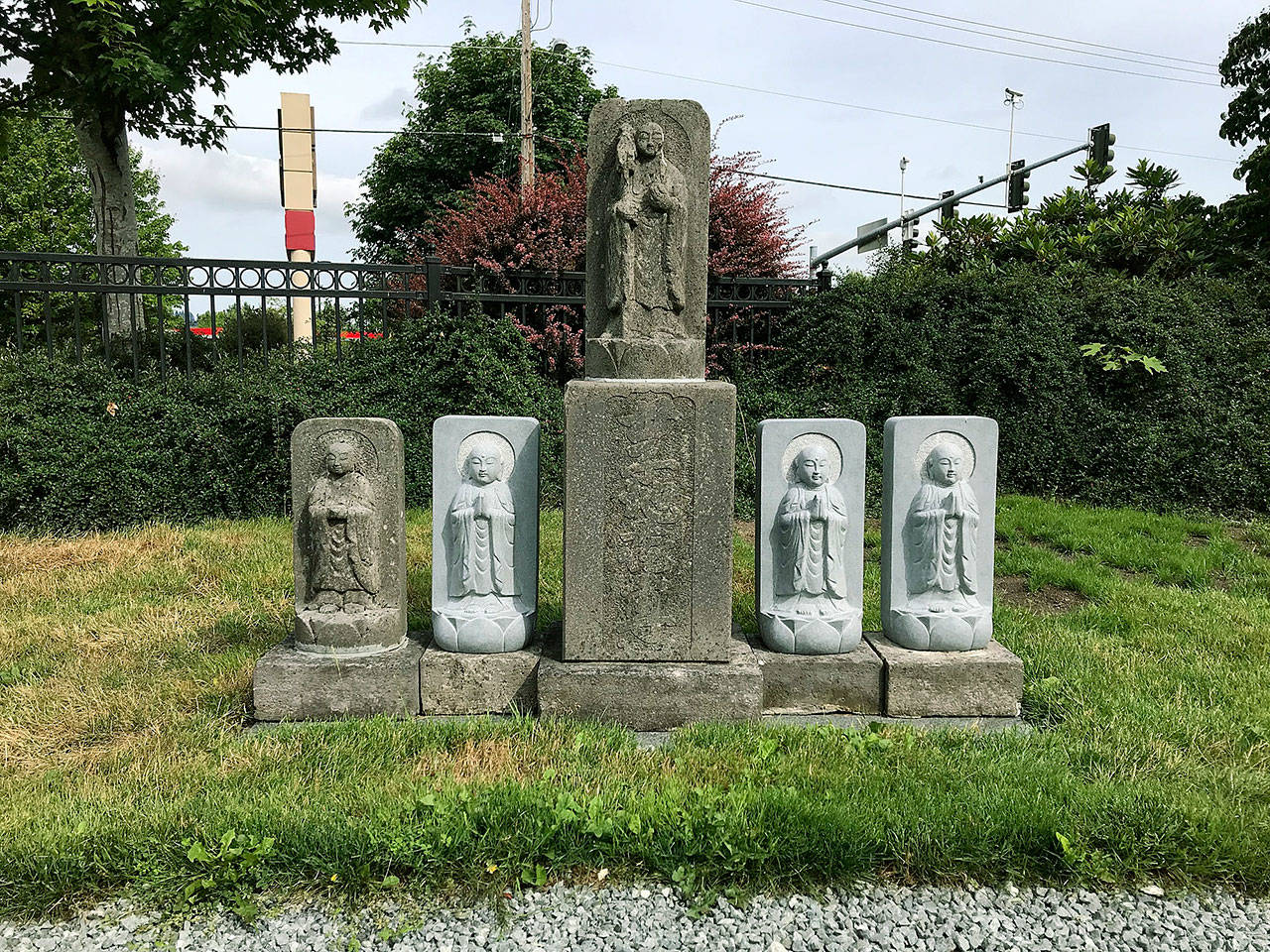The city of Auburn, in partnership with the White River Valley Museum, Mountain View Cemetery, the White River Buddhist Temple and Seattle Betsuin Buddhist Temple, officially dedicates the restored Pioneer Cemetery on Aug. 22.
The event – 6 to 7 p.m. at the cemetery, corner of 8th Northeast and Auburn Way North – celebrates the restoration projects at the historic site and will include a greeting from Mayor Nancy Backus and an invocation and dedication of the newly restored Tora Kato monument from the White River and Seattle Buddhist temples.
Pioneer Cemetery was officially established in the 1860s and has gone by many names in the past: Faucett Cemetery, the Cemetery at Slaughter, the Japanese Cemetery and the Auburn Pioneer Cemetery. It sits on a busy corner, but inside its gates is a story of dedication, perseverance and reverence.
The cemetery has two main sections — early pioneering families and Japanese American families. It is a unique location with a rich history that includes stories of homesteading, immigration and dreams of a better life. In 2016, the cemetery became a King County and City landmark and in 2017 the museum worked with citizen volunteers, officials from the city of Auburn’s Parks, Arts, and Recreation Department, and Hoshide Wanzer Architects to create a master plan for its restoration. Restoration projects completed to-date include new walkways, interpretive signage, a gathering space and the restoration of the Tora Kato monument.
In the late 1930s, a commemorative monument was installed to honor the passing of Tora Kato and her four children whose lives were tragically taken by their father. During the height of anti-Japanese sentiments during World War II, the Jizo statues that were attached to the monument were defaced or stolen. Jizo are Japanese Buddhist figures that are traditionally thought of as guardians who help women and children. One of these statues was returned in the 1980s, leaving three empty spots. In the spring of 2018, three replacement Jizo were imported and installed on the newly stabilized monument.
Pioneer Cemetery restoration projects were made possible with funding from 4Culture, the Washington State Department of Archeology and Historic Preservation, as well as generous contributions from the Japanese American community.
Overflow parking is available across the street at Fred Meyer.


